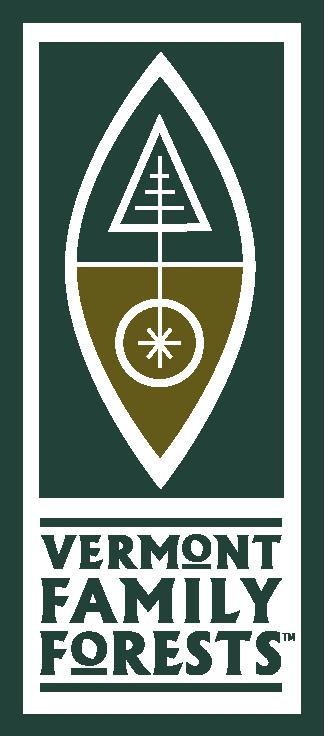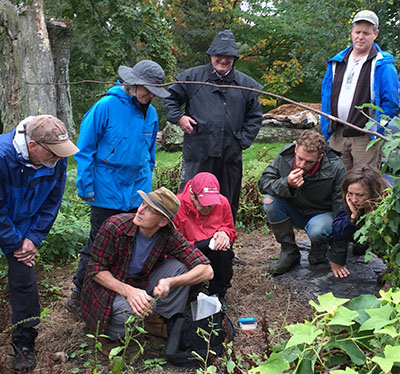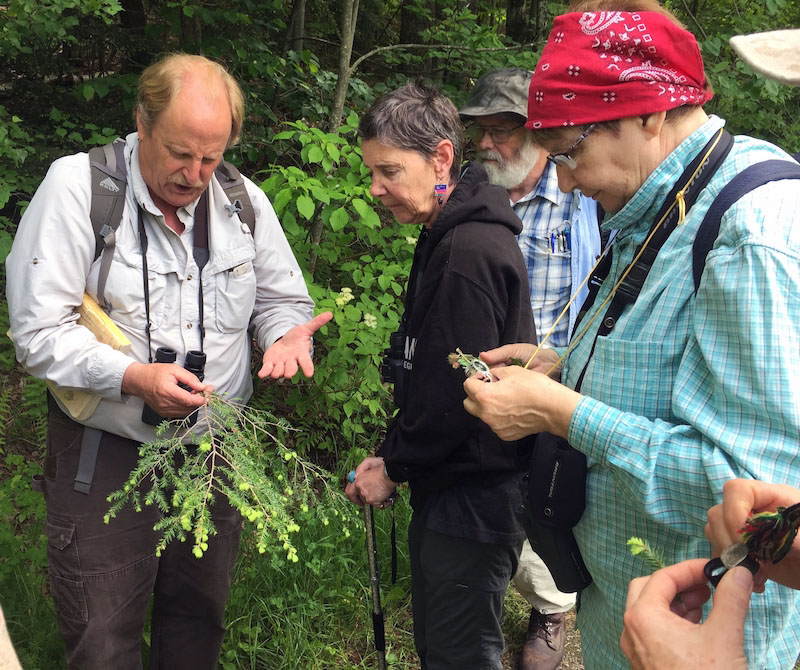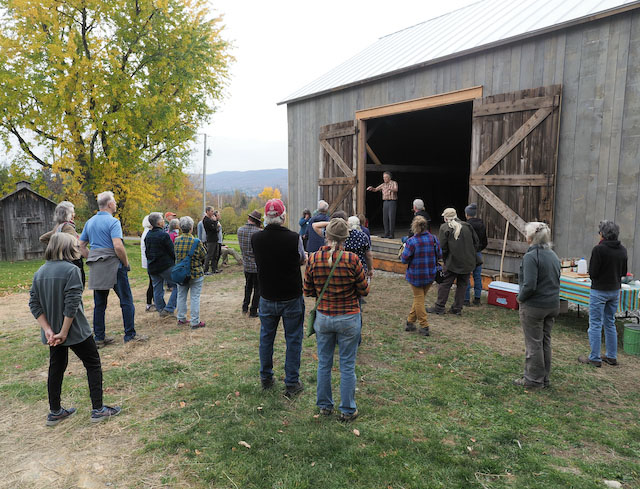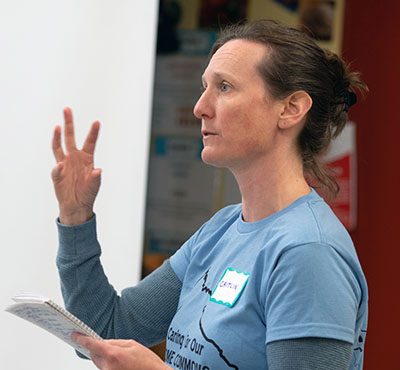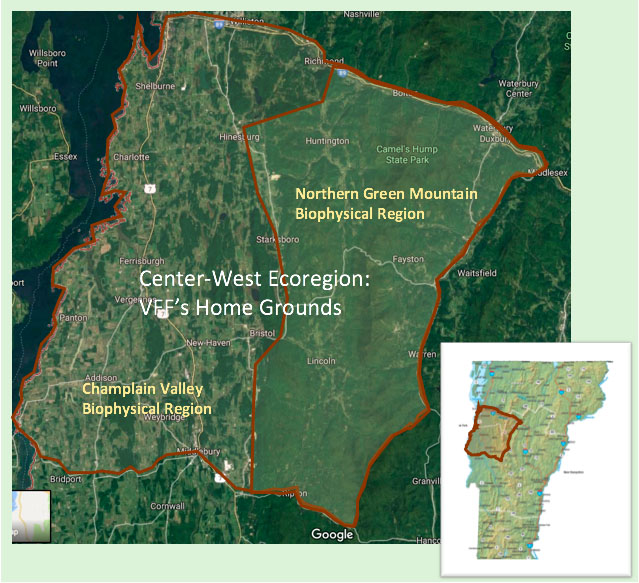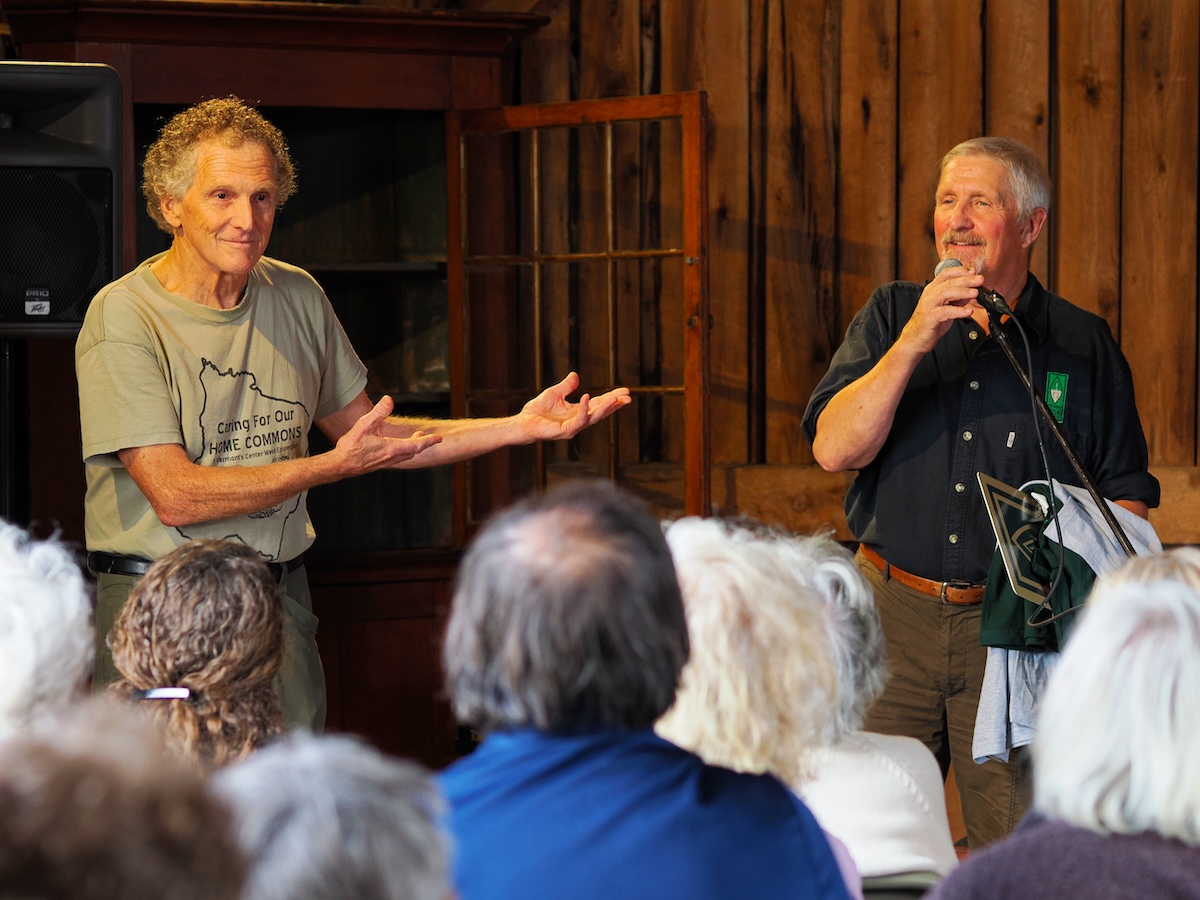
Vermont Family Forests has hosted a whole lot of gatherings since our organization started in 1995. Some have been deeply memorable, some truly magical, some downright delicious. Our most recent event, Barn Yarns with Bill Torrey, was all of these, hands down. On its surface, the gathering at VFF’s Anderson Wells Farm in Lincoln was about storytelling and wood-fired pizzas for a great cause. At its heart though, it was about mutually beneficial relationship—with the land and with each other, encapsulating and celebrating what Vermont Family Forests has been up to for 30 years.
A seventh-generation Vermonter with 40 years of logging work behind him, Bill Torrey turned to storytelling when he retired from working in the woods. He gathered many of those stories into two books—The Ta Ta Weenie Club and Cutting Remarks. Winner of five Moth StorySLAMs, Bill has performed his stories more than 150 times. But for both Bill and his rapt audience, the afternoon at Wells Farm was something mighty special. “That was probably the best night of storytelling that I’ve done,” he said afterwards. “Ever.”
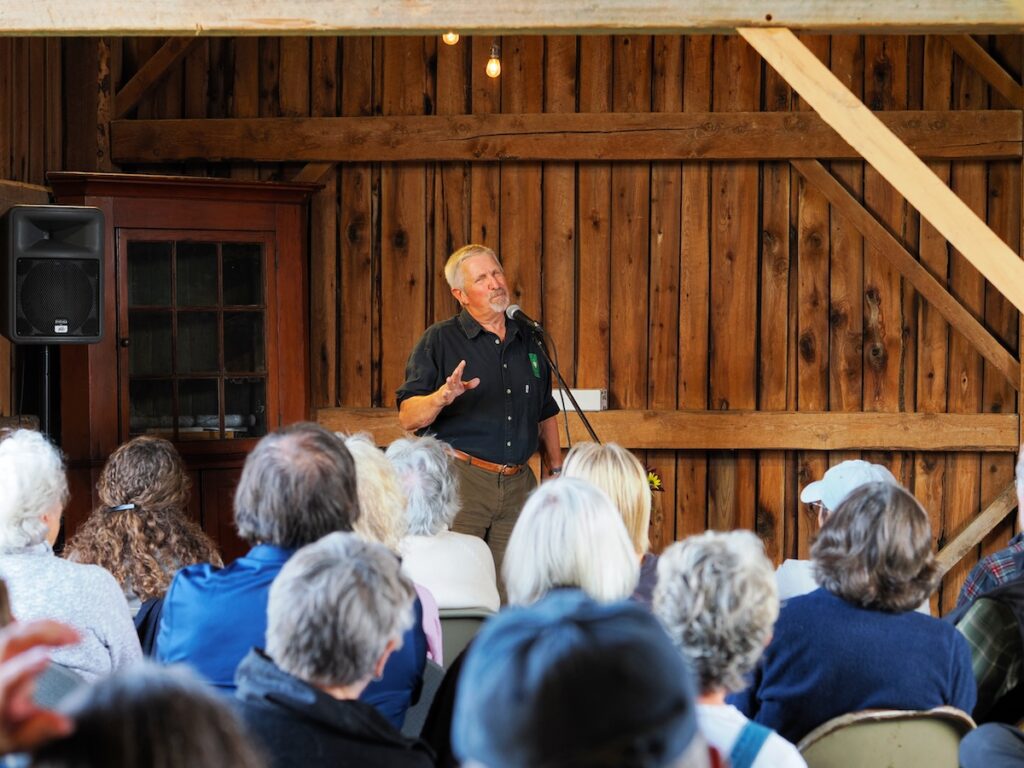
The alchemy of many elements made the gathering soar, with generosity a core ingredient. Bill donated his performance, suggesting that in lieu of a ticket fee, audience members could donate to Feeding Champlain Valley, a local non-profit that provides food to community members in need. Vermont Family Forests donated staffing, food and drink, the skills of photographer Jonathan Blake, and the venue for the gathering. Participants donated funds—raising more than $1,200 for Feeding Champlain Valley—and brought favorite pizza toppings to share.
In the bright, clear light of late afternoon, we both belly-laughed and got teary as Bill shared his stories, which captured the hilarity and poignancy of life—especially one lived in close, active, skillful, and risk-fraught connection to the land. Bill’s stories felt doubly meaningful given his long connection with Vermont Family Forests and our executive director David Brynn.
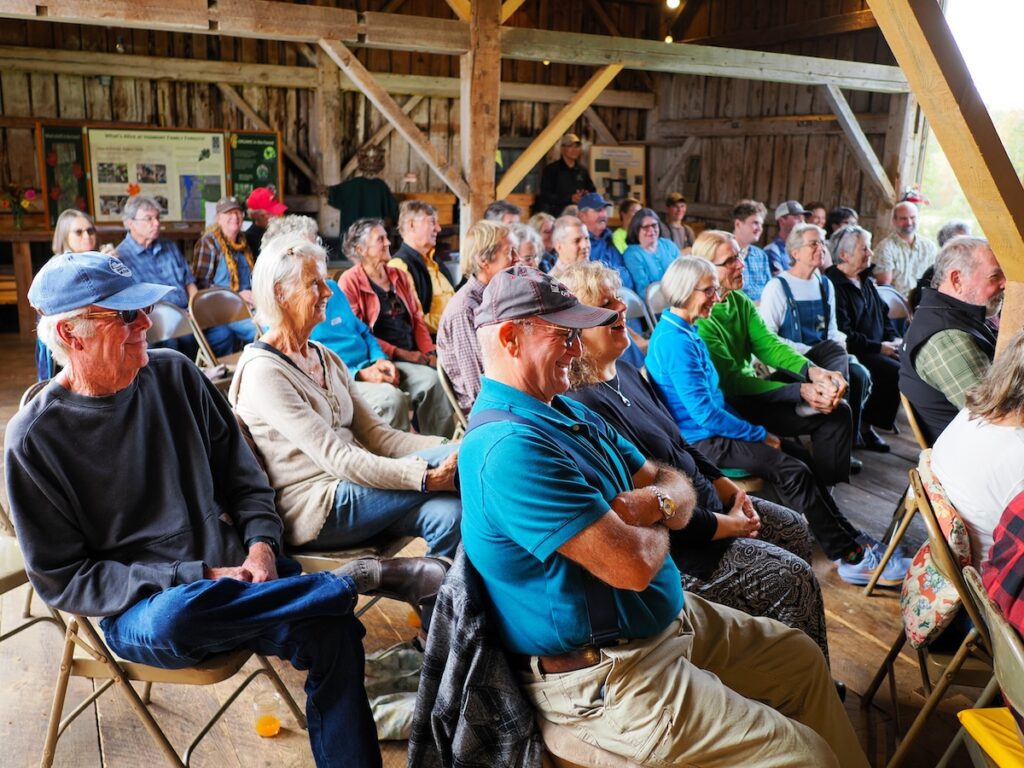
As David described when he introduced Bill, they met in 1979 when each was green to their profession, introduced to one another by Chittenden County Forester Bill Hall. David was Assistant Chittenden County Forester then, looking for ways to apply Aldo Leopold’s forest conservation ideals. Bill Torrey was a young logger looking for something different than industrial logging. And so began 35 years of working together on countless logging jobs around the region—from Mt. Philo State Park and Hinesburg Town Forest to Little Hogback Community Forest and scores of private family forests.
“We grew into it,” David said. “Slow and steady.” Recalling a favorite quote from UVM educator John Dewey—”Without application, principles and ideals have no bearing or test”—David reflected on how his partnership with Bill over the years so beautifully reflected the skillful application and testing of principles and ideals.
Back then, private forests (which account for 80% of Vermont forest ownership) were referred to within the state’s forestry jargon as NIPFs—Non-industrial Private Forests—a name that profoundly missed the mark of reflecting the depth of care and love David knew most private landowners felt for their forests. Driving home from Montpelier one night, inspired by a moving presentation by Reed Noss, who had just published Saving Nature’s Legacy, David recalls wondering— what if these forests and forest owners were celebrated for what they are, rather than what they aren’t? What if, instead of NIPFs, they were called “family forests”?
Chafing at an entrenched forestry system based on an industrial model, in which private landowners lacked information about and access to economically viable options for forestland management and conservation, David started Vermont Family Forests in 1995, creating a non-profit organization dedicated to conserving the health of the whole forest community. He soon developed VFF’s Checklist of Forest Conservation Practices, articulating specific practices for careful, economically feasible, ecologically regenerative forestry. Bill Torrey put them to the test in the forest.
As David put it, “I brought my college version of forestry, Wendell Berry, and Aldo Leopold to the forest. Bill brought logging expertise, craftsmanship, and open mindedness to the forest. Together we brought bearing and test to the forest. We had a blast.”

David capped his introduction with his favorite Bill-ism: “It’s not what you can pull, Dave. It’s what you can stop!”—a classic understatement of the danger-fraught business of hauling big logs out of the forest over Vermont’s hilly terrain.
“I could write a book about Bill Torrey,” David said with a smile. “Thank goodness, he already has,” he quipped, turning the mic over to Bill.
For the next 45 minutes, Bill took us with him back through time and space, into the wild realms of adolescence and into the forest as a young adult. Guided by his vivid conjuring, we witnessed exceptionally close encounters with massive falling trees and heavy equipment. He made it through—sometimes because of the quick-witted actions of his best friend and logging partner, sometimes through his own wiles, sometimes through pure luck. We held our breaths as Bill described his mother’s death at age 52, precipitated by a simple slip on dewy grass, and how that experience of the randomness of death bolstered his choice to enter the most dangerous of occupations.
For us at Vermont Family Forests, this gathering was the perfect way to celebrate our 30th year—filled with good friends, good food, good stories, and good will, all within the context of the forests of our home place. Thank you, Bill, for bringing this remarkable celebration to life.
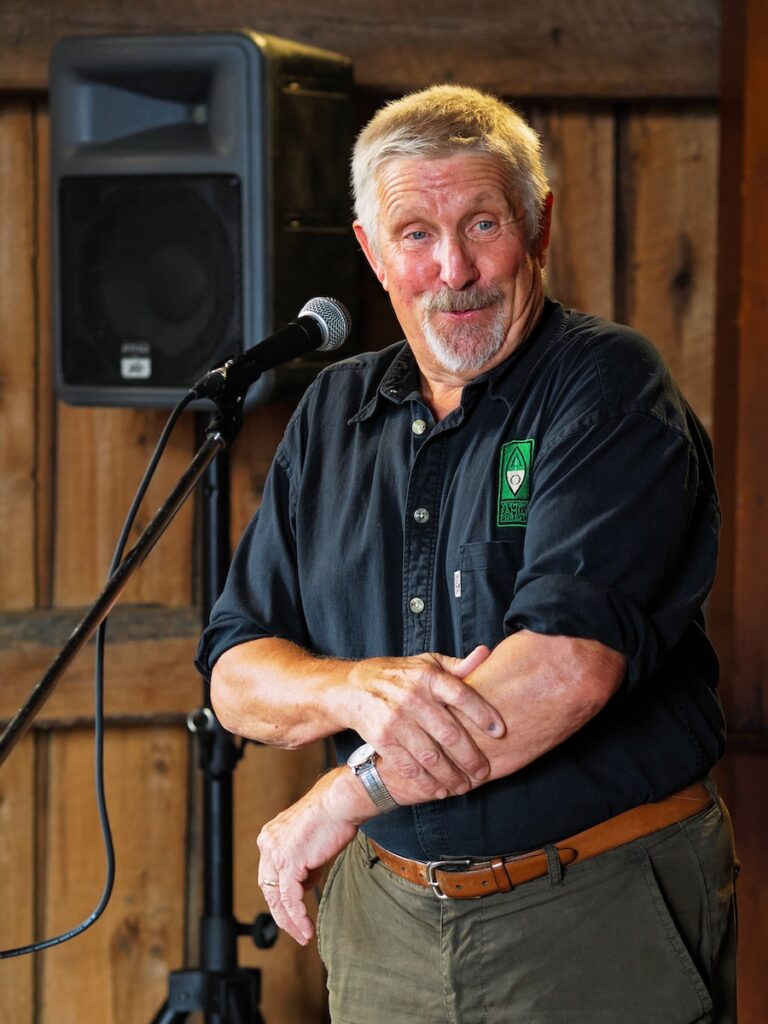
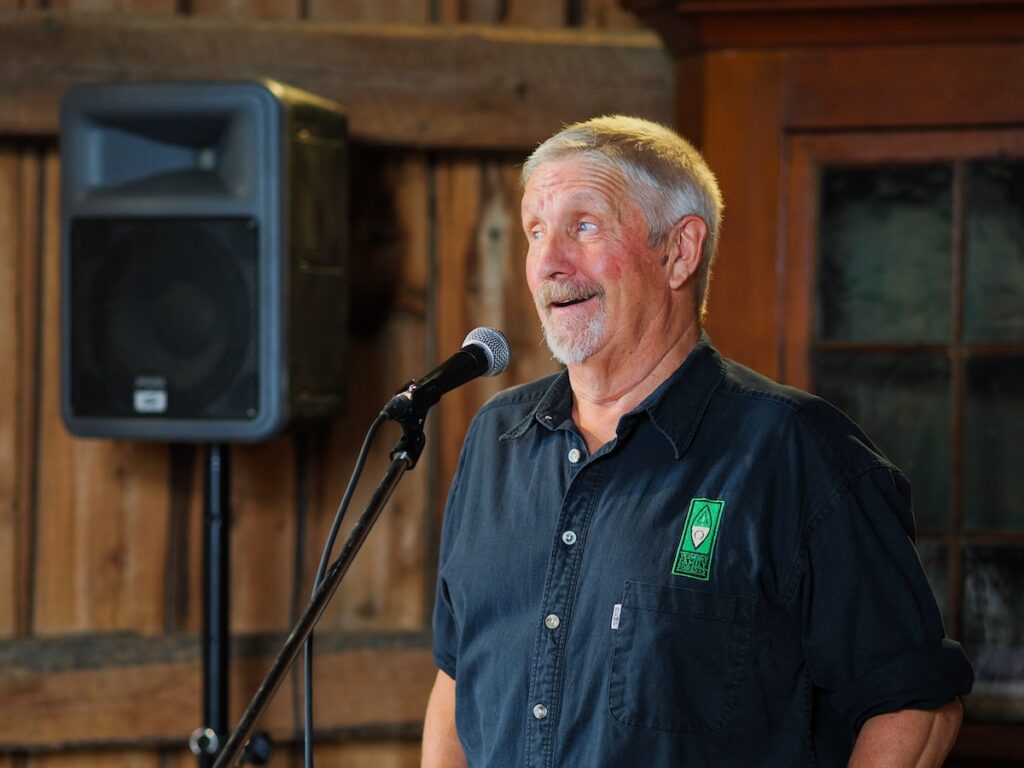
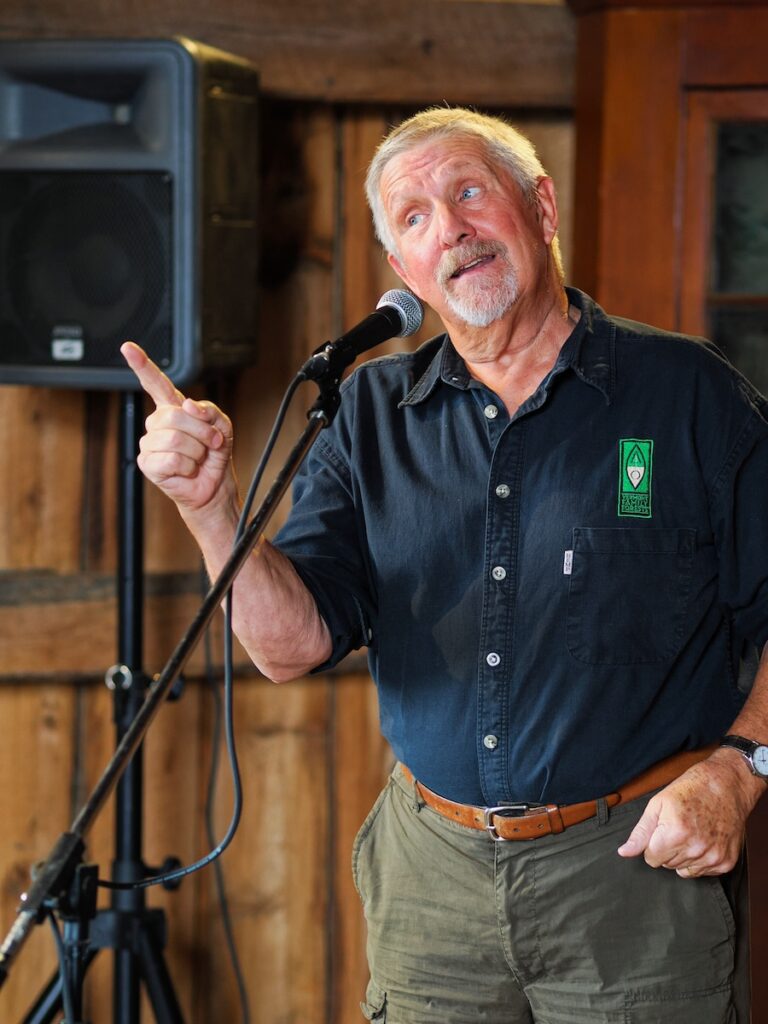
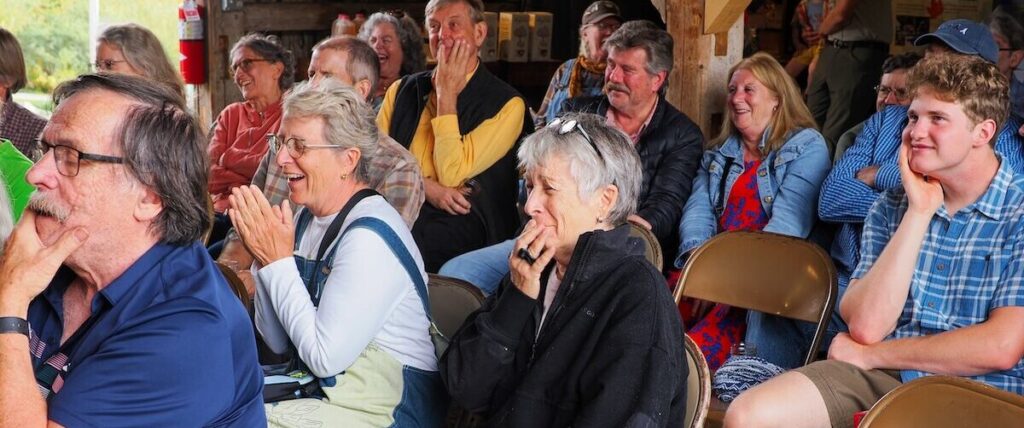
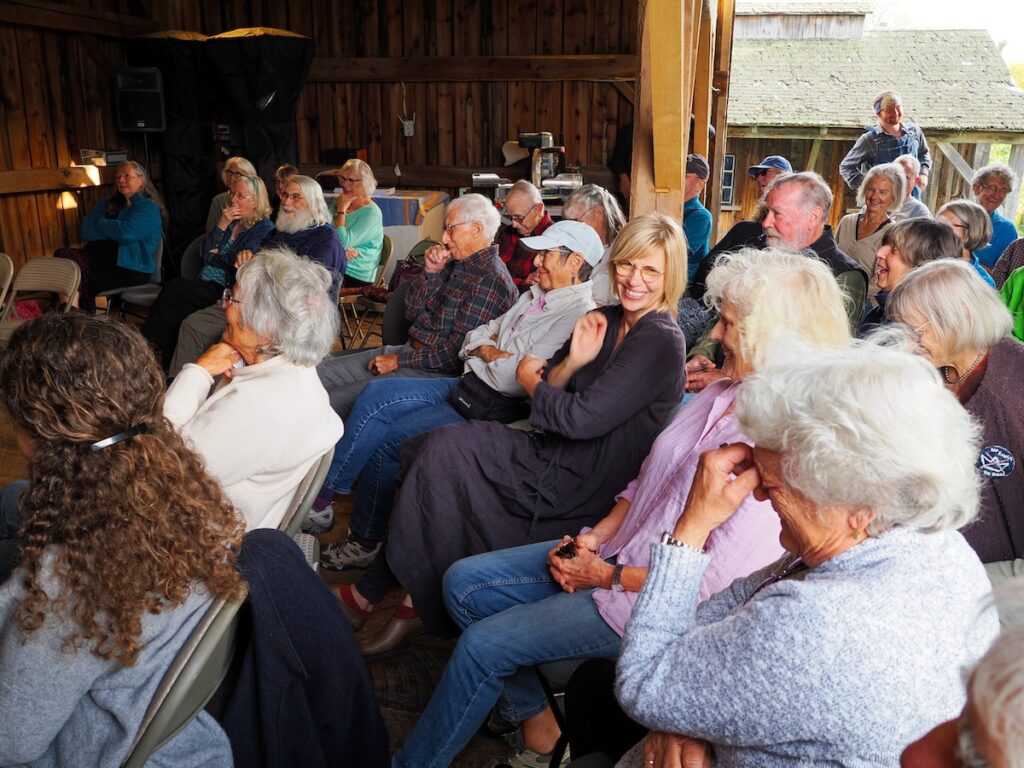



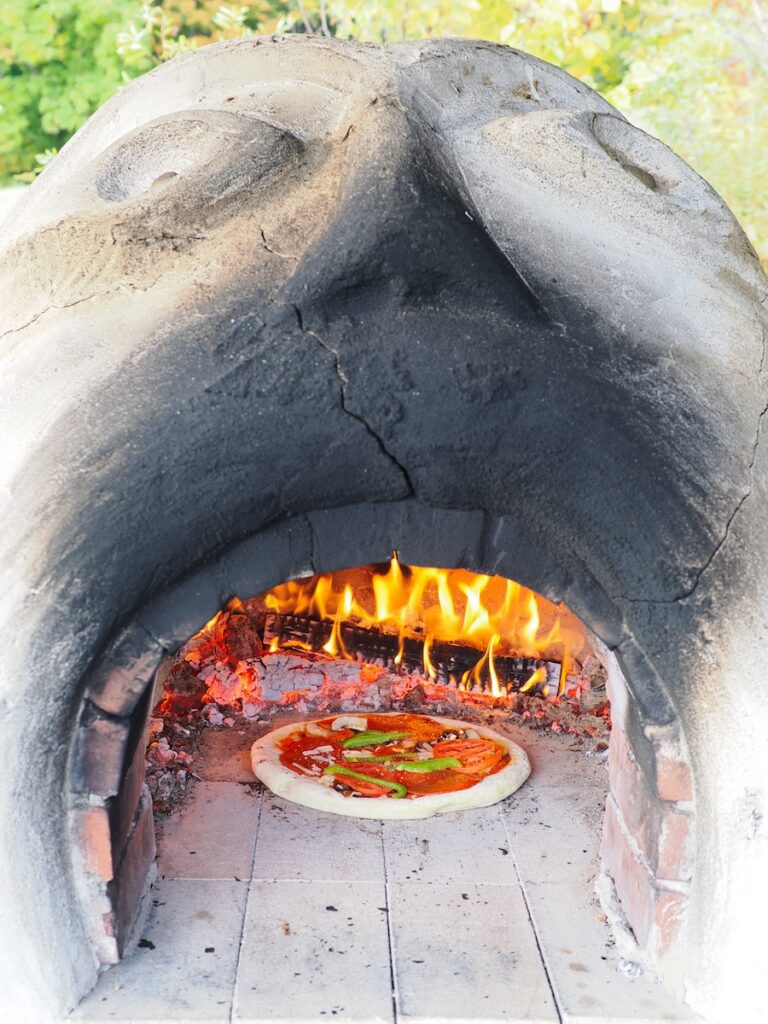
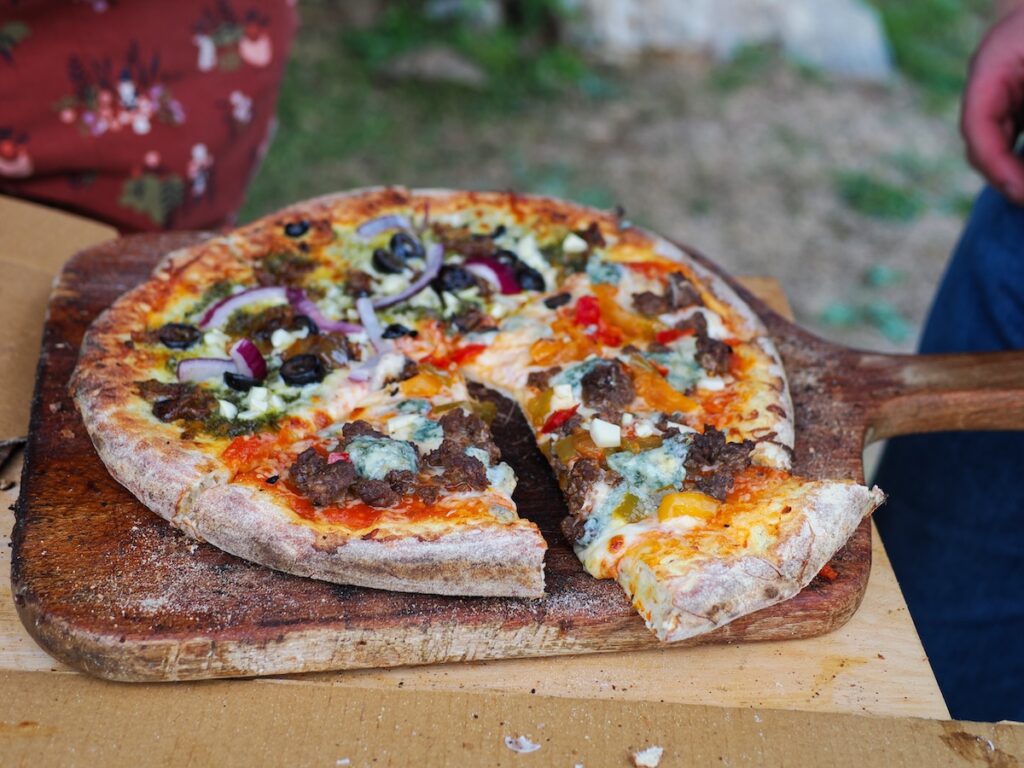
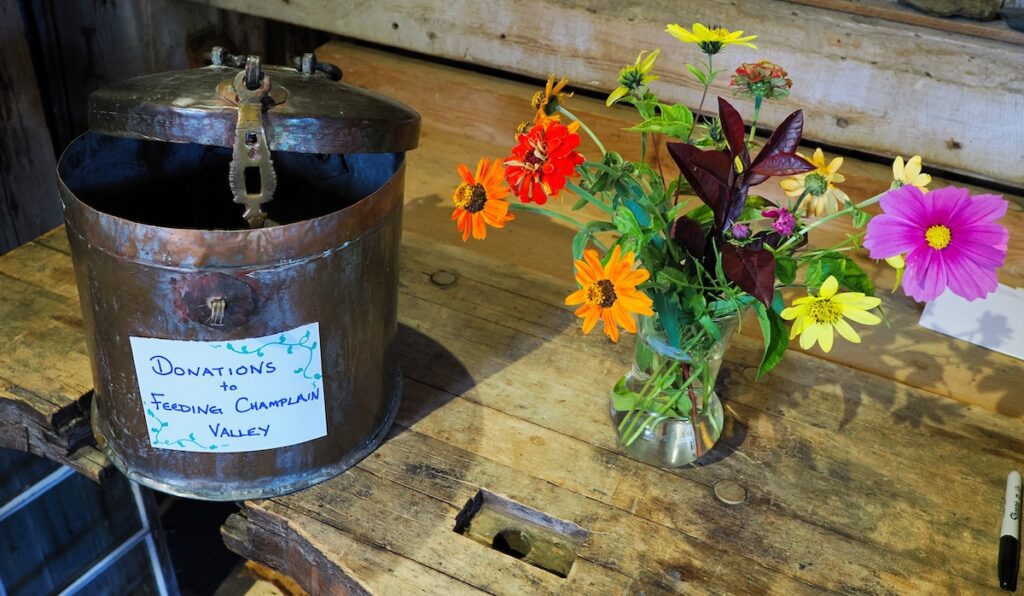

All photos by Jonathan Blake.
